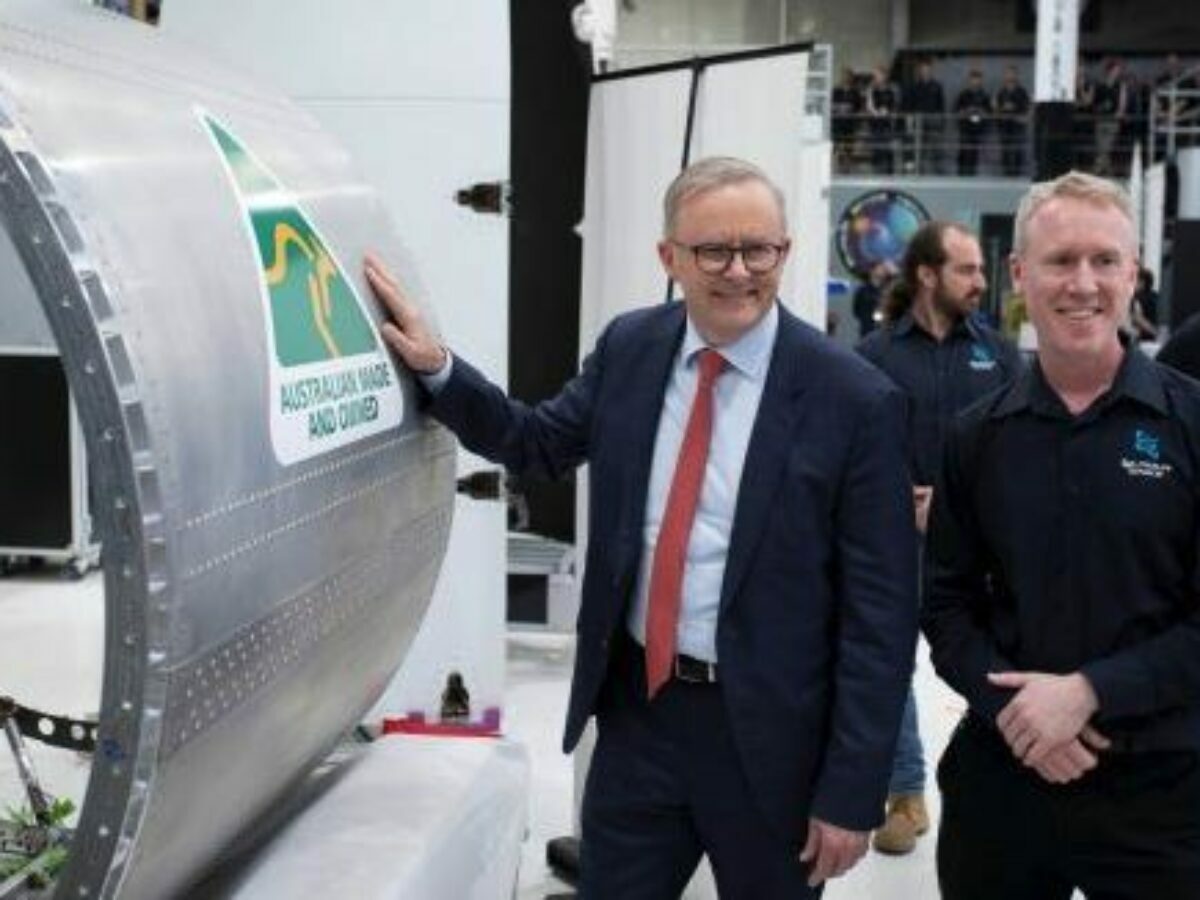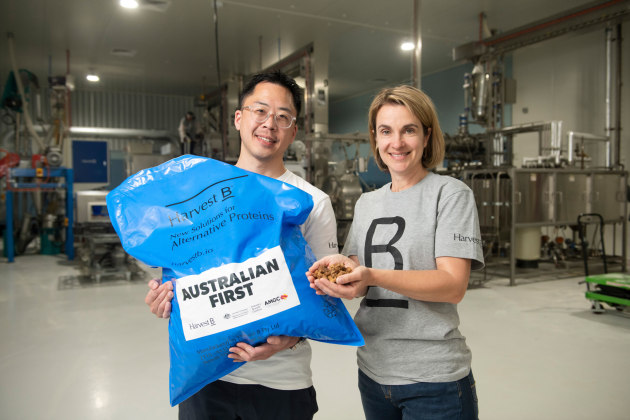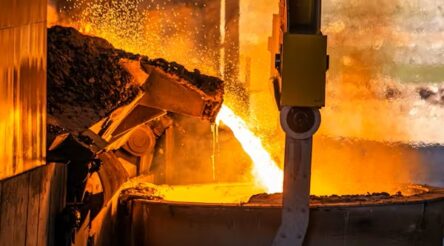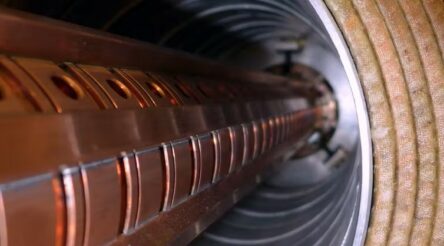Spotlight on scaleups: why more manufacturers need to grow up

In the first part of a two-part series we consider the importance of scaleup manufacturers. Brent Balinski spoke to some fast-growing manufacturers and other experts about the subject.
Adam Gilmour describes himself and his team as “super-busy” assembling an orbital launch vehicle and launch site when asked.
Gilmour Space Technologies has been focussed on rockets since 2015. Gilmour hopes its Eris rocket can reach low earth orbit in a maiden launch by the end of the calendar year.
“I'm going to try very hard to do that, even if we have to work on weekends,” Gilmour tells @AuManufacturing.
“But if we have to, we’ll take a financial hit and just work on the weekends to try to get the rocket away.”
Only 11 nations have put orbital vehicles in space, and only five regularly do so nowadays, says the CEO and co-founder, when asked about the complexity of what they’re attempting.
He adds that the craft contains 55,000 different parts. This includes nuts and bolts, Gilmour concedes, “but it’s still a lot.”
On June 23, GST marked a rare milestone for an Australian manufacturer, making its 200th hire and moving out of the SME and into the “large” company designation.
Arguably, the nation needs more manufacturers armed with such scale and ambition, willing to do something very difficult and help add to the nation’s economic diversification.
Late-last month updated Economic Complexity Index data were published by the Harvard Kennedy School, showing Australia’s continued slide in the rankings to 93: down a dozen places in a decade, sandwiched between Uganda and Pakistan, and placed last among OECD nations.
According to the Atlas of Economic Complexity a “troubling pattern of export growth “ is displayed, with the largest contribution “coming from low and moderate complexity products.”
Commenting on the news, Dr Jens Goennemann of the Advanced Manufacturing Growth Centre advised: “We must invest now while the times are good to ensure that we have a robust manufacturing industry making the high value, highly complex items the world needs to [weather] future bad times and to give our children meaningful and resilient jobs.”

Grant Dooley (credit breakthroughvictoria.com)
Maturity and critical mass
Besides unexploited opportunities to add value, another feature of Australia’s economy is a large proportion of smaller manufacturers.
Of all employing manufacturers, 87 per cent of these were made up of fewer than 20 people. (A large company in Australia is defined as a headcount of 200 or more and medium 20 – 199.)
Increasing the number of mid-sized manufacturing firms is vital, according to Grant Dooley, CEO of Breakthrough Victoria.
“Mid-sized companies have maturity and critical mass in capabilities and resources that allow them to take advantage of market opportunities in a way smaller sized companies can’t,” Dooley tells @AuManufacturing.
“Manufacturing capability is vital for the growth of key sectors of Australia’s economy such as aerospace engineering, medical technology and pharmaceuticals, agriculture and food processing, clean energy and minerals.”
Breakthrough Victoria is an independent company set up in 2021 to manage the $2 billion Breakthrough Victoria Fund.

This series is sponsored by Fusion5. Download Fusion5's free eBook — Scale up your manufacturing business for success. 4 roadblocks to growth — at this link.
It is described as having a mandate for investing in “innovation for impact”. Scaleup manufacturers in its portfolio include Flaim Systems, Quantum Brilliance and Samsara Eco.
Scaleup is a term occasionally used to describe high-growth companies. Definitions can differ: the OECD says a scaleup is a company with employment or revenue growth increasing by 20 per cent or more a year over three years (starting off a base of ten or more employees.) A recent report from the Tech Council of Australia suggested scaleups were at the Series B stage.
Harvest B is not yet a scaleup by the two above definitions, but the three-year-old plant-based ingredient company is about to go international. Last week it announced a distribution agreement with New Zealand’s Dunninghams that will see it achieve its first exports.
Harvest B launched its factory at Penrith in December last year, with 1,000 tonnes of capacity. Co-founder and CEO Kristi Riordan tells @AuManufacturing that R&D has been the focus so far, but it is planning to up production with a second shift some time in the next six months.
Riordan – whose background is in high-growth businesses in the US and moved here in 2020 – agrees that Australia needs more manufacturers to scale up, for reasons including competitiveness, job creation and technological progress.
“Otherwise we'll be left behind”
“If you don't have scale, it will be very difficult to be able to serve any markets outside of Australia, and Australia is just not that big of a market. So if we don't get scale, eventually people will become competitive enough from other markets to be able to come in domestically and take business away,” she offers.
“Australia needs to think about it from a defensibility perspective as much as how do we create high quality jobs for Australians? How do we make sure that we have affordable products that are made locally?
“These are all important things that need to happen to have a vibrant economy here in Australia… Otherwise we’ll be left behind. And manufacturing has to be a part of that.”
While this website regularly celebrates examples of innovation at smaller manufactu

Harvest B co-founders Alfred Lo and Kristi Riordan (credit AMGC)
rers, the limitations of being subscale are obvious.
Gilmour agrees that there are examples of companies of 50 people making great products, but says the reality is that sizeable teams are needed to create many important goods of high complexity, adding that Australians need to raise their ambitions.
“If you look at anything that matters, like power plants for hydroelectric stations, and buses and trains and tanks and aircraft and rockets and all kinds of these things that we take for granted in our society: you need to have bigger manufacturing teams to make those,” he says.
“And so I think when the community, when the culture, when the government is comfortable with just very small manufacturing, you’re never going to step up and make things that you really need, and to compete globally.”
Main picture: Prime minister Anthony Albanese with Adam Gilmour (credit Gilmour Space)
Stay tuned for part two of this story on Friday, where we’ll look at what it takes to grow a promising new manufacturing business.
 This series is sponsored by Fusion5. The decision to expand your manufacturing business is an exciting one, but it also comes with its fair share of challenges. So, what are they, and how can an ERP help you overcome them? Download Fusion5's free eBook — Scale up your manufacturing business for success. 4 roadblocks to growth — at this link.
This series is sponsored by Fusion5. The decision to expand your manufacturing business is an exciting one, but it also comes with its fair share of challenges. So, what are they, and how can an ERP help you overcome them? Download Fusion5's free eBook — Scale up your manufacturing business for success. 4 roadblocks to growth — at this link.
@aumanufacturing Sections
Analysis and Commentary Awards casino reviews Defence Gambling Manufacturing News Online Casino Podcast Technology Videos





